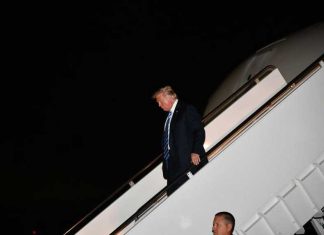Louis René Beres
Excruciating But Indispensable: Calculating Probabilities of an Israel-Iran Nuclear War
Credo quia absurdum, “I believe because it is absurd.”-Tertullian
By definition, an Israel-Iran nuclear exchange is presently impossible. Though Iran is vigorously pursuing a military nuclear capability, it still has a substantial way to go before it can...
Figuring the Odds of an Israel-Iran Nuclear War: A Complex Task for Logic, Mathematics...
“For by Wise Counsel, Thou Shalt Make Thy War.”
Proverbs, 24,6
As a matter of logic, an Israel-Iran nuclear exchange is presently out of the question. Though energetically pursuing a military nuclear capability, the Shiite Republic...
Concepts of Time in Israel’s Defense Policy
“Clocks slay time.”-William Faulkner, The Sound and the Fury
Some facts speak for themselves. For Israel, no arena of national decision-making is conceivably more important than defense and security. Nonetheless, this primary arena is still dominated...
Resisting “Mass”: Intellect, Courage and Human Survival
Perpetually self-destructive, humankind continues to embrace war, genocide, and terrorism almost routinely. Plausibly, this lethal embrace is today even more worrisome than in the past. What are the pertinent particulars?
To begin, the lead engines...
Honoring Nuremberg: The Legal Obligation to Prosecute Vladimir Putin Under ICC Jurisdiction
Nullum crimen sine poena, “No crime without a punishment”
The ICC Warrant Against Vladimir Putin
The International Criminal Court has issued an arrest warrant against Russian President Vladimir Putin for committing egregious war crimes in Ukraine. With this...
Seeking Interior Views: Understanding Russian Crimes Against Humanity “from withín”
“So says science, and I believe in science. But up to now, has science ever troubled to look at the world other than from without?”
– Pierre Teilhard de Chardin, The Phenomenon of Man
Prima facie,...
If Trump Returns as President: An Existential Threat to the United States
Credo quia absurdum, “I believe because it is absurd”-Tertullian
There are many reasons to fear Donald J. Trump’s return to the White House, but one remains especially worrisome. It stems from the former president’s conspicuous...
Another Gaza War? Legal and Strategic Aspects of Israeli Counterterrorism
In its steadily escalating war on Palestinian terror, Israel has a law-based responsibility to limit harm to Arab populations and a concurrent responsibility not to bring war-related suffering to its own populations. To clarify these intersecting...
Glorifying Riches: America’s Relentless Distortion
“The rich man glories in his riches, because he feels that they naturally draw upon him the attention of the world…At the thought of this, his heart seems to swell and dilate itself within...
Ascending to human “oneness” – Jewish philosophy and global unity[1]
“The dust from which the first man was made was gathered in all the four corners of the world.”
Talmud
The Lethal Pathology of Belligerent Nationalism
The belligerent nationalisms of world politics are always injurious. By any...



































![Ascending to human “oneness” – Jewish philosophy and global unity[1]](https://jewishwebsite.com/wp-content/uploads/2023/02/art_painting_mural_michelangelo_il_creazione_d_adamo_sistine_chapel_vatican_rome-982342-324x235.jpg)